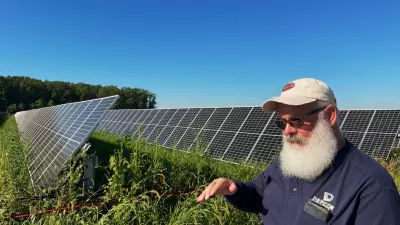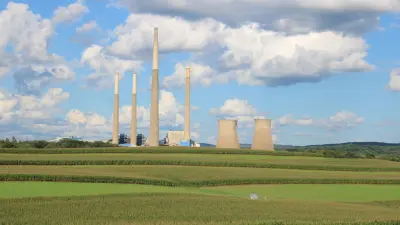In a letter to Pennsylvania’s congressional delegation, Gov. Josh Shapiro warned there could be consequences to eliminating clean energy tax credits.

“Over $3 billion in direct investment in Pennsylvania energy projects would be undermined by H.R. 1’s tax increases,” Shapiro wrote. “That includes potential impacts to over 70 facilities that have been announced across the commonwealth, directly threatening more than 26,000 jobs by 2030 due to the effective tax hikes.”
H.R. 1, the budget bill containing many of the Trump administration’s domestic policy priorities, would eliminate a number of tax credits for renewable energy projects, many of which were created by the Democratic-led Inflation Reduction Act in 2022.
Shapiro warned the hardest impact would fall on those slated to open soon. In the House version, most of the clean energy tax credits would end abruptly, instead of in 2032, when they were initially set to expire.
The Senate version is slightly more lenient. Tax credits for wind and solar projects would instead be phased out, with decreasing credits for projects that break ground in 2026 and 2027.
The Senate also moved to keep certain tax credits for nuclear, hydropower, battery and geothermal projects until 2034. Shapiro applauded this change.
Still, he specifically addressed several that have already been announced, which he said could suffer under the changes. That includes two projects in Clearfield County that he noted are collectively anticipated to create more than 900 jobs.
Shapiro said the bill could also effectively end state programs designed to help community institutions lower their energy bills. He said the Solar for Schools program, for example, could potentially lose over $30 million.
The proposed budget also eliminates consumer-focused tax credits for new and used electric vehicle purchases as well as home energy efficiency and clean energy conversion projects.







